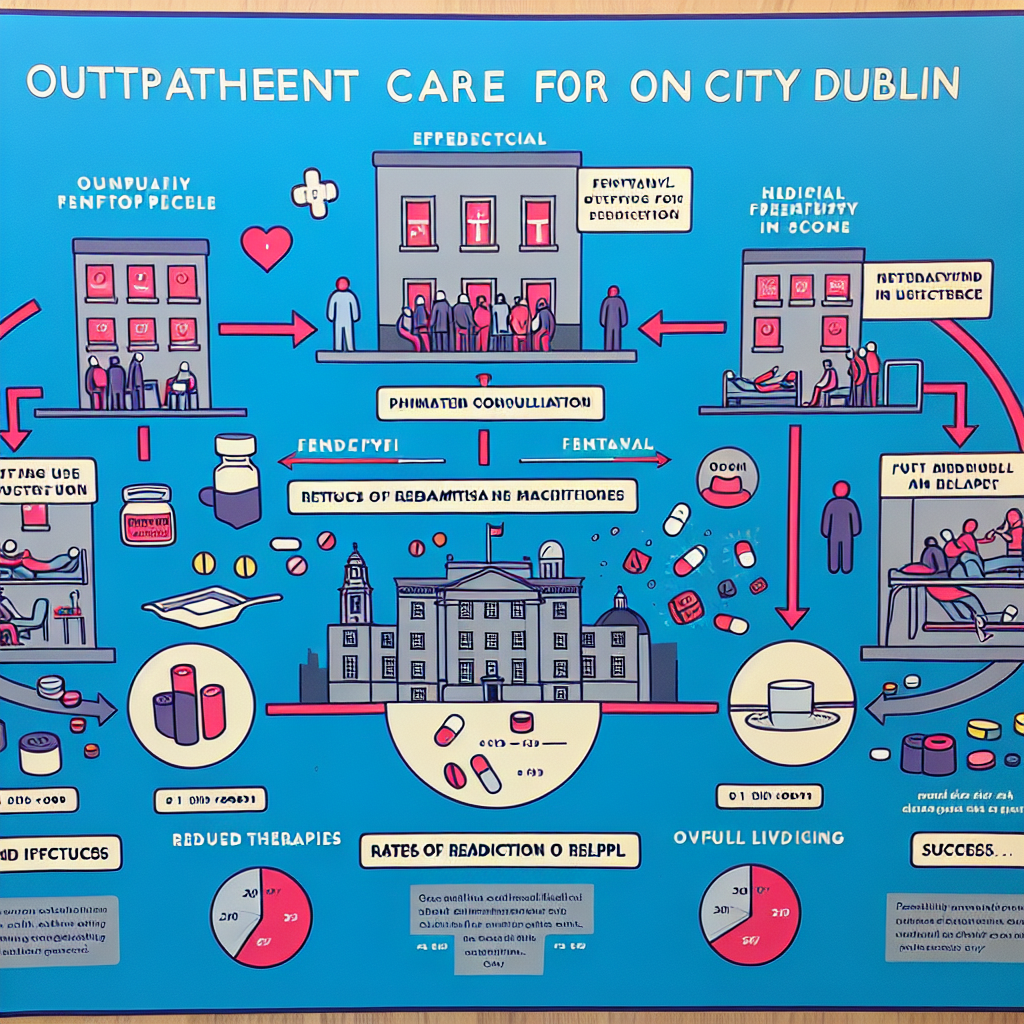-
Table of Contents

“Empower Your Recovery: Discover the Best Therapy Options for Overcoming Fentanyl Addiction”
Introduction
Recovering from fentanyl addiction is a complex and challenging process that requires a multifaceted approach to treatment. Fentanyl, a potent synthetic opioid, has a high potential for addiction and overdose, making effective therapy options crucial for those seeking recovery. The best therapy options for fentanyl addiction typically include a combination of medical, psychological, and social interventions. Medication-assisted treatment (MAT) using drugs like methadone, buprenorphine, or naltrexone can help manage withdrawal symptoms and reduce cravings. Behavioral therapies, such as cognitive-behavioral therapy (CBT) and contingency management, address the psychological aspects of addiction by helping individuals develop coping strategies and change harmful behaviors. Support groups and peer counseling provide essential social support and a sense of community, which are vital for long-term recovery. Holistic approaches, including mindfulness, exercise, and nutrition, can also play a significant role in supporting overall well-being. By integrating these diverse therapy options, individuals recovering from fentanyl addiction can achieve a more comprehensive and sustainable path to sobriety.
Top Behavioral Therapies for Fentanyl Addiction Recovery
Recovering from fentanyl addiction is a challenging journey, but with the right support and therapeutic interventions, individuals can reclaim their lives and achieve lasting sobriety. Behavioral therapies play a crucial role in this process, offering structured and evidence-based approaches to help individuals understand and change their addictive behaviors. Among the top behavioral therapies for fentanyl addiction recovery, Cognitive Behavioral Therapy (CBT), Contingency Management (CM), and Motivational Interviewing (MI) stand out as particularly effective.
Cognitive Behavioral Therapy (CBT) is a cornerstone in addiction treatment, focusing on identifying and modifying negative thought patterns and behaviors that contribute to substance use. Through CBT, individuals learn to recognize triggers, develop coping strategies, and build healthier habits. This therapy empowers individuals to take control of their thoughts and actions, fostering a sense of self-efficacy and resilience. By addressing the underlying psychological factors of addiction, CBT helps individuals develop a more balanced and positive outlook on life, which is essential for long-term recovery.
Transitioning to another effective approach, Contingency Management (CM) offers a unique and practical method to reinforce positive behaviors. CM involves providing tangible rewards for meeting specific treatment goals, such as maintaining sobriety or attending therapy sessions. This approach leverages the power of positive reinforcement to encourage individuals to stay committed to their recovery journey. The immediate rewards in CM can be highly motivating, helping individuals to build momentum and sustain their efforts in overcoming addiction. Over time, the positive behaviors reinforced through CM can become ingrained, leading to lasting changes and a reduced risk of relapse.
Motivational Interviewing (MI) is another powerful tool in the arsenal of behavioral therapies for fentanyl addiction recovery. MI is a client-centered approach that helps individuals explore and resolve their ambivalence about change. Through empathetic and non-judgmental dialogue, therapists guide individuals to articulate their own reasons for wanting to change and to develop a personal commitment to recovery. This intrinsic motivation is crucial, as it drives individuals to take ownership of their recovery process and to persist in the face of challenges. MI fosters a collaborative and supportive therapeutic relationship, which can be particularly empowering for individuals who may feel isolated or misunderstood.
In addition to these core therapies, integrating family therapy can provide a comprehensive support system for individuals recovering from fentanyl addiction. Family therapy addresses the dynamics within the family unit, helping to repair relationships and build a supportive home environment. By involving family members in the recovery process, individuals can benefit from a network of understanding and encouragement, which is vital for sustaining long-term sobriety.
Furthermore, combining these behavioral therapies with holistic approaches such as mindfulness and stress management techniques can enhance overall well-being. Mindfulness practices, such as meditation and yoga, help individuals develop greater self-awareness and emotional regulation, which are essential skills for managing cravings and preventing relapse. Stress management techniques, including deep breathing exercises and progressive muscle relaxation, provide practical tools for coping with the inevitable stresses of life without resorting to substance use.
In conclusion, the journey to recovery from fentanyl addiction is multifaceted and requires a comprehensive approach. Cognitive Behavioral Therapy, Contingency Management, and Motivational Interviewing are among the top behavioral therapies that offer effective strategies for overcoming addiction. By addressing the psychological, behavioral, and emotional aspects of addiction, these therapies provide individuals with the tools and support they need to achieve lasting recovery. With determination, support, and the right therapeutic interventions, individuals can overcome fentanyl addiction and build a healthier, more fulfilling life.
Effective Medication-Assisted Treatments for Overcoming Fentanyl Dependence
Overcoming fentanyl addiction is a challenging journey, but with the right support and treatment options, recovery is entirely possible. One of the most effective approaches to treating fentanyl dependence is through medication-assisted treatments (MAT). These treatments combine the use of FDA-approved medications with counseling and behavioral therapies, providing a comprehensive approach to recovery. By addressing both the physical and psychological aspects of addiction, MAT can significantly improve the chances of long-term sobriety.
One of the primary medications used in MAT for fentanyl addiction is methadone. Methadone is a long-acting opioid agonist that helps to reduce cravings and withdrawal symptoms by acting on the same brain receptors as fentanyl, but without producing the same euphoric effects. This allows individuals to stabilize their lives and engage more fully in counseling and other supportive services. Methadone has been used successfully for decades and is available through specialized clinics, ensuring that patients receive the necessary medical supervision and support.
Another effective medication is buprenorphine, which is often combined with naloxone to form Suboxone. Buprenorphine is a partial opioid agonist, meaning it activates the opioid receptors in the brain to a lesser degree than full agonists like fentanyl or methadone. This helps to alleviate withdrawal symptoms and cravings while also providing a ceiling effect that reduces the risk of misuse and overdose. Naloxone, on the other hand, is an opioid antagonist that blocks the effects of opioids, further discouraging misuse. Suboxone can be prescribed by certified healthcare providers, making it more accessible for individuals seeking treatment.
Naltrexone is another medication used in MAT, particularly for individuals who have already detoxed from opioids. Unlike methadone and buprenorphine, naltrexone is a pure opioid antagonist, meaning it completely blocks the effects of opioids. This helps to prevent relapse by eliminating the rewarding effects of opioid use. Naltrexone can be administered as a daily pill or a monthly injection, providing flexibility based on the patient’s needs and preferences.
While these medications play a crucial role in managing the physical aspects of fentanyl addiction, they are most effective when combined with counseling and behavioral therapies. Cognitive-behavioral therapy (CBT) is one such approach that helps individuals identify and change negative thought patterns and behaviors related to their addiction. By developing healthier coping mechanisms and problem-solving skills, patients can better manage triggers and stressors that may lead to relapse.
Motivational interviewing (MI) is another valuable therapeutic technique that focuses on enhancing an individual’s motivation to change. Through empathetic and non-judgmental conversations, therapists help patients explore their ambivalence about recovery and strengthen their commitment to making positive changes. This collaborative approach empowers individuals to take an active role in their recovery journey.
Support groups, such as Narcotics Anonymous (NA), also provide a vital source of encouragement and accountability. By connecting with others who have faced similar challenges, individuals can share their experiences, gain insights, and build a network of support that reinforces their commitment to sobriety.
In conclusion, medication-assisted treatments offer a powerful and effective means of overcoming fentanyl addiction. By combining medications like methadone, buprenorphine, and naltrexone with counseling and behavioral therapies, individuals can address both the physical and psychological aspects of their dependence. With the right support and a comprehensive treatment plan, recovery from fentanyl addiction is not only possible but achievable, paving the way for a healthier and more fulfilling life.
Q&A
1. **Question:** What is one of the most effective therapy options for recovering from fentanyl addiction?
**Answer:** Medication-Assisted Treatment (MAT) using medications like buprenorphine or methadone, combined with counseling and behavioral therapies, is one of the most effective options for recovering from fentanyl addiction.
2. **Question:** How does Cognitive Behavioral Therapy (CBT) help in the recovery from fentanyl addiction?
**Answer:** Cognitive Behavioral Therapy (CBT) helps individuals identify and change negative thought patterns and behaviors related to their addiction, develop coping strategies, and manage triggers and cravings, thereby supporting long-term recovery.
Conclusion
The best therapy options for recovering from fentanyl addiction include a combination of medication-assisted treatment (MAT) using medications like methadone, buprenorphine, or naltrexone to manage withdrawal symptoms and cravings, alongside behavioral therapies such as cognitive-behavioral therapy (CBT), contingency management, and motivational interviewing. Comprehensive care should also involve support groups, counseling, and holistic approaches like exercise, nutrition, and mindfulness practices. An individualized treatment plan that addresses both the physical and psychological aspects of addiction is crucial for effective recovery.



